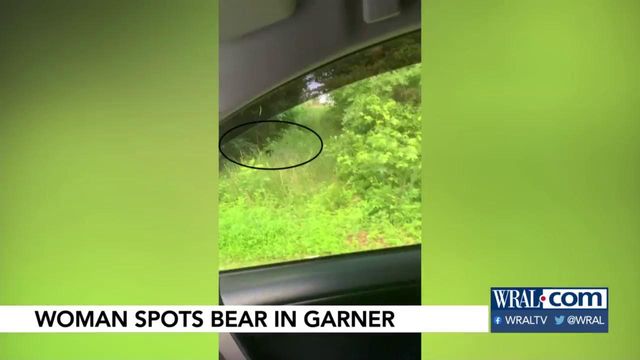If you see a bear cub, leave it alone but make a phone call, NC Wildlife says
Now that spring has arrived, the N.C Wildlife Resources Commission is reminding the public what to do if you spot a black bear.
Posted — UpdatedNow that spring has arrived, the N.C Wildlife Resources Commission is reminding the public what to do if you spot a black bear.
According to officials, bears are more active in the spring, particularly in the eastern and western parts of the state, as they emerge from their winter dens.
Sometimes bear cubs become separated from their mothers, but if you see a bear cubs left alone it is usually just waiting for the parent to return from foraging, officials say.
If you see a cub alone and are concerned, steer clear of it, take note of your location and call the N.C. Wildlife hotline at 866-318-2401. If it is a weekend or evening, contact your district's wildlife biologist. Never approach a bear or try to feed it.
You should also avoid approaching adult bears or bear dens, officials said.
According to N.C. Wildlife, bears look for shelter between December and April when temperatures are coldest. They often create dens in rock and tree cavities, in brush piles, in excavations under fallen trees, in ground nests and even under decks and in crawlspaces, officials say.
If you see a bear den under your deck, shed, or crawlspace, leave the area and call the N.C. Wildlife Helpline at 866-318-2401. According to N.C. Wildlife, homeowners can usually safely co-exist with the bear until it leaves the den in the spring.
"Bears are not aggressive by nature," according to a post by N.C. Wildlife. "Because it’s mating season, young males are getting kicked out by their mothers and are moving out on their own to establish new areas and find a female. They often don’t know where they’re going and sometimes end up in urban areas."
If you see a bear in an urban area, it is just passing through, wildlife officials say. Steer clear of the bear and do not harm it.
Related Topics
• Credits
Copyright 2024 by Capitol Broadcasting Company. All rights reserved. This material may not be published, broadcast, rewritten or redistributed.






